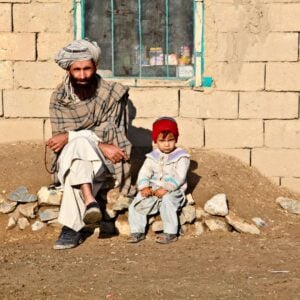Ethiopia joined the global community in observing World Patient Safety Day (WPSD) 2025 under the theme “Safe care for every newborn and every child.” The national celebration, held at ALERT Comprehensive Specialized Hospital in Addis Ababa, brought together health authorities, professionals, patients, families, and development partners to reaffirm the country’s commitment to providing safe, high-quality care for children from the very beginning of life. The event featured panel discussions, patient testimonies, a local choir performance, documentary screenings, poster presentations, and guided hospital tours, highlighting Ethiopia’s progress in advancing neonatal and child health safety.
A major milestone during the celebration was the launch of Ethiopia’s National Incident Reporting and Management Guidelines and Patient Identification Guidelines. These tools aim to standardize safety practices, reduce preventable harm, and strengthen accountability within health institutions, marking a significant step forward in fostering a culture of patient safety across the country.
Dr. Bejoy Nambiar, WHO Ethiopia’s Health System and Policy Advisor, acknowledged Ethiopia’s achievements in reducing maternal and child mortality but emphasized ongoing challenges in ensuring consistently safe and effective care for newborns and children. He identified systemic issues such as underdeveloped infrastructure, unsafe medication practices, weak communication, inadequate staffing, and limited family engagement as key contributors to preventable harm. Dr. Bejoy highlighted that addressing these challenges is both a moral imperative and a strategic opportunity to improve long-term health outcomes, reaffirming WHO’s support for Ethiopia’s Ministry of Health.
A plenary session convened health professionals, policymakers, parents, and caregivers to discuss the vulnerabilities of newborns and children, the national and global burden of preventable harm, and Ethiopia’s progress in improving safety. The session underscored the critical role of parents and caregivers as active partners in care and explored strategies to empower families to engage meaningfully in the health process. Discussions also highlighted innovative practices, ongoing challenges, and the importance of research and innovation in advancing child health safety.
The commemoration reflected Ethiopia’s broader commitment to strengthening leadership, culture, and systems for patient safety at all levels of care. It demonstrated how collaborative action—from frontline workers to policymakers—can create safer health environments for newborns and children. By mobilizing government officials, civil society, and international partners, the event promoted sustainable safety improvements, encouraged family involvement, and celebrated best practices and innovations in child healthcare.
World Patient Safety Day, established by the World Health Assembly in 2019 and observed annually on 17 September, aims to raise global awareness, encourage public engagement, and inspire action to reduce harm in healthcare. In 2025, WHO’s focus on safeguarding newborns and children under the theme “Safe care for every newborn and every child” and the slogan “Patient safety from the start!” highlighted the critical importance of protecting children’s health from the earliest moments of life.
The day concluded with a candlelight ceremony, leaving participants with a renewed sense of responsibility and hope. Ethiopia’s health leaders reaffirmed their commitment to patient safety from the start, emphasizing that every child deserves safe and high-quality care.







